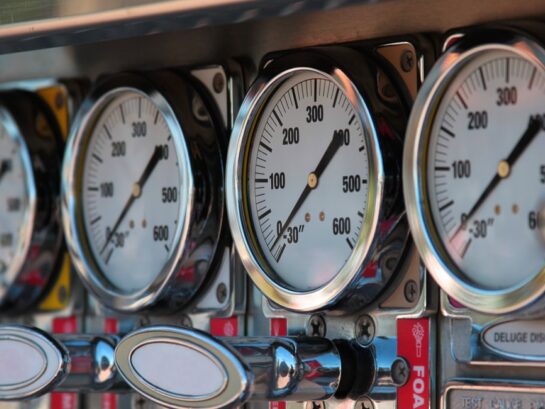Cleaning and drying components correctly is key to achieving their specified performance goals. Proper preparation for ultimate use, assembly, or subassembly of components requires cleaning and drying of all types including glass, machined, and aluminum. Industrial producers, processing facilities, and labs need to be aware of the right methods for cleaning and component drying they use.
Components must meet strict cleaning standards in order to operate properly. In high-tech industries, such as biotechnology facilities, and chip manufacturers, aerospace, the standards and quality of cleanliness required are generally higher. That is why component drying is crucial for many sectors.
Continue reading to discover what component drying is and why it's important. You will also learn more about the importance of dew point testing as well as solvent dryness (hydrocarbon) determination.
Understanding Component Drying and Its Importance
What is Component Drying?
Component drying is the process of drying electronic parts to protect them from damage during the soldering process. This procedure ensures that the hardware is completely dry, removing any leftover washing and verification media. Drying is usually done until no more moisture is picked up or there are no more measurable amounts of organic solvents left.
Component drying is typically accomplished using one of the following five system drying techniques:
Air drying
The definition of "air dry" is to put something out in the open so that the air around it will evaporate the liquid in it. Using hot air, the air-drying method ensures that any liquid on the surface of the parts vaporizes through a large-scale airflow that can be changed. This makes sure that your parts are left completely dry and free of any residual liquid.
Purge drying
Purge drying is a method of drying that uses gaseous nitrogen and a dehumidification drying chamber to pull moisture out of the test space and make the chamber less humid. This is done with an active adsorbent and a hygroscopic substance, which makes the air around it dry.
Conventional oven drying
Drying is an important process in many industries, and the conventional drying method has many advantages. It is efficient in aqueous systems, easy to use, and uses less energy. After the preceding washing process, the drying phase uses the components' natural heat, and an abundance of cold, dry air causes the evaporation to take place naturally.
Vacuum Drying
The drying method is used in solvent and water-based cleaning machines because it lets metal parts with tricky shapes dry quickly and completely.
Vacuum Oven Drying
Vacuum drying is a drying method that uses heating systems to dry components quickly and safely while using little energy.
Why is Component Drying Important?
Here are some of the reasons why component drying is important and should be prioritized:
- It helps prevent corrosion by removing moisture that could cause damage to the component.
- It guarantees that there is no moisture in the components, which might lead to mold, fungus, or other problems when packaged.
- It ensures that all components are thoroughly dried and all set for the next procedure, thus preventing any delays and complications that may negatively affect the next operation.
- It guarantees that all components are simple to handle by eliminating any moisture that may render them slippery and difficult to grasp.
Understanding Dew Point and Dew Point Testing
What is Dew Point Testing?
Dew point testing is an accurate way to get a precise reading of the humidity level in the air. By finding the temperature at which the air is saturated with water vapor, you can determine how much condensation will occur.
Why is Dew Point Testing Important?
Dew Point Testing helps keep your pressurized air at a temperature where water vapor remains a vapor and does not condense into a liquid state. By measuring and minimizing the moisture content, dew point testing prevents pipe obstructions, freezing, equipment failure, and pollutant contamination.
Understanding Solvent Dryness (Hydrocarbon) Determination, Residual Solvent Test
What is residual solvent testing?
As the name suggests, residual solvent testing is used to identify if any leftover solvents or other contaminants are present and in hazardous concentrations. It can also help assess if the necessary solvent purging method was followed throughout the product design.
Why is residual solvent testing important?
Residual solvent testing is a critical component of ensuring product quality and safety. By testing for the presence of solvents, product manufacturers can ensure that their products are safe for human ingestion or implantation. Additionally, residual solvent testing can identify potential issues with plastic packaging for food products, such as odor or taste contamination.
Why Hiring a Precision Cleaning Service is the Best Solution for Industrial Organizations
Precision cleaning companies can clean all the mechanical and electronic devices thoroughly without causing any wear and tear. When hiring a reputable precision cleaning company, industrial companies can rest assured that any mechanical or electronic parts that become damaged during the process will be immediately refunded and replaced. This is a much better solution than trying to implement a precision cleaning system in-house, which can be costly and time-consuming.
In addition, most precision cleaning companies provide reusable and recyclable precision cleaners. This means that industrial organizations won't have to purchase a cleaning system every time they require a precision cleaning or component drying service. Hiring a precision company is a great way to make a business more accessible and competitive while saving a lot of money.
For all of your precise cleaning requirements, PFC provides the solutions you're looking for. View our services and fill in the contact form to speak to a professional.

